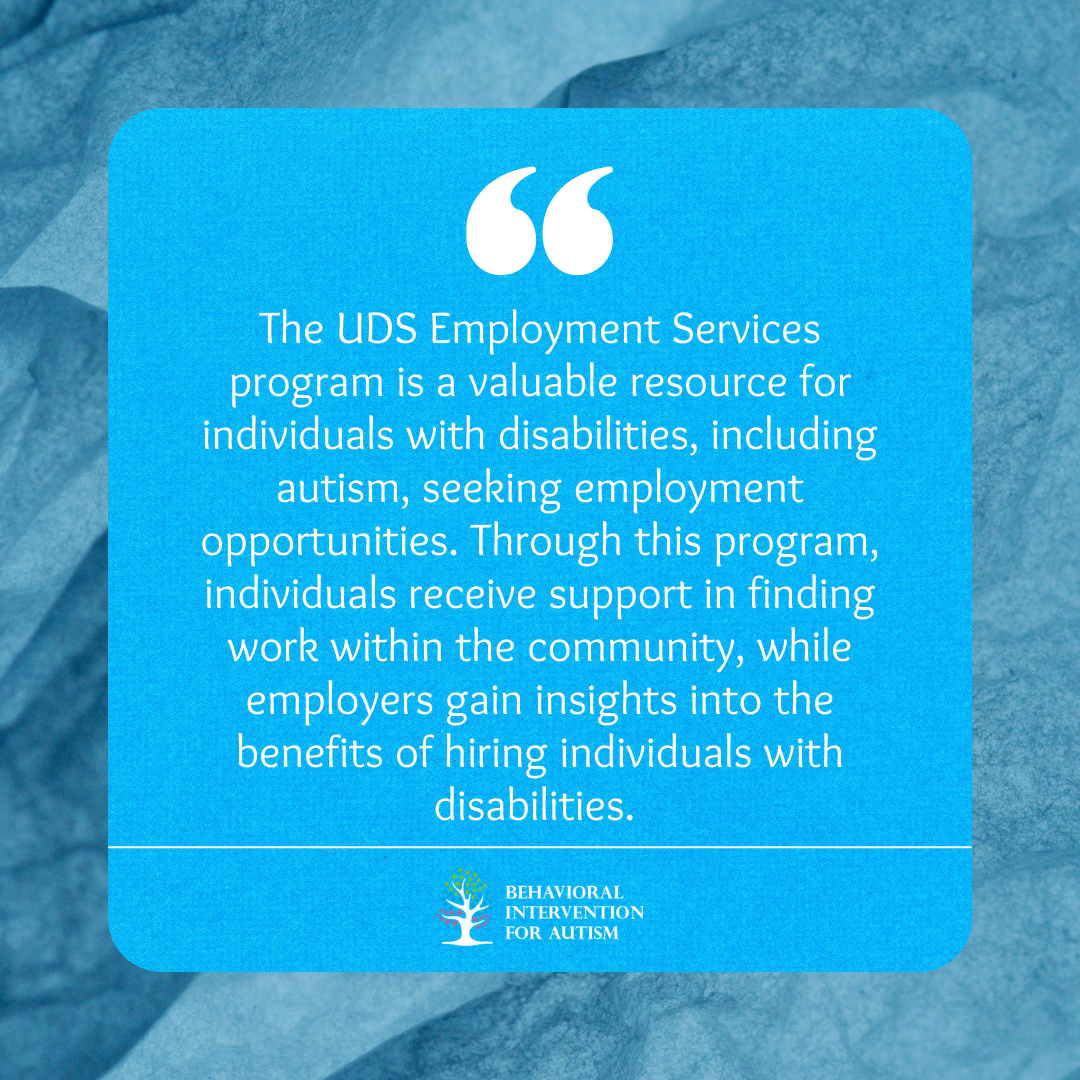
Table of Contents
Individuals with autism face unique challenges in the workforce due to the characteristics of Autism Spectrum Disorder (ASD) and the lack of understanding and support from employers. It’s crucial to delve into the nuances of autism and the concerning employment statistics for adults with autism to address these challenges effectively.
Understanding Autism Spectrum Disorder
Autism Spectrum Disorder is a developmental disorder that affects social communication and behavior. Individuals on the autism spectrum may have difficulties with social interactions, communication, and repetitive behaviors. It’s important for employers and coworkers to have a basic understanding of ASD to create an inclusive and supportive work environment for individuals with autism.
Employment Statistics for Autistic Adults
Studies have revealed disheartening statistics regarding the employment status of adults with autism. As many as 90% of adults with autism are either underemployed or unemployed. This significant percentage highlights the pressing issue of employment opportunities for individuals on the autism spectrum. The missing middle in the workforce comprises individuals with autism who possess valuable skills but haven’t had the chance to showcase their abilities. This disparity underscores the need for increased awareness, understanding, and tailored support in the workplace to bridge this gap and provide equal employment opportunities for individuals with autism.
Understanding the complexities of Autism Spectrum Disorder and acknowledging the concerning employment statistics are pivotal steps in promoting inclusivity and offering effective support for individuals with autism in the workplace. By fostering a culture of acceptance, understanding, and accommodations, employers can create an environment where individuals with autism can thrive and contribute their unique skills and perspectives.
Types of Employment for Individuals With Autism
Recognizing and addressing the factors that contribute to poor hygiene among individuals with autism allows caregivers and support networks to implement tailored strategies for improvement. Understanding the unique needs and challenges of these individuals is crucial for providing the support and guidance necessary to help them overcome hygiene-related obstacles.
Competitive Employment
Competitive employment refers to jobs in the general workforce where individuals with autism work alongside neurotypical individuals. In this type of employment, individuals are expected to perform job tasks independently and meet the same productivity standards as their peers. Competitive employment provides a sense of inclusion and allows individuals with autism to showcase their skills and abilities in a diverse workplace setting.
Supported Employment
Supported employment involves providing individuals with autism the necessary assistance and accommodations to help them succeed in the workplace. This type of employment often includes job coaches who work directly with individuals to help them learn job tasks, develop skills, and navigate the work environment. Supported employment aims to foster independence while providing the support needed for individuals to thrive in their roles.
Secure/Sheltered Employment
Secure/sheltered employment offers a more structured and supportive work environment for individuals with autism. In these settings, individuals work in controlled environments where they receive specialized training and supervision. Secure/sheltered employment aims to provide a safe and nurturing space for individuals who may require additional support to perform job tasks effectively.

Supporting Employees With Autism at Work
In the workplace, it is crucial to provide adequate support for employees with autism to help them excel in their roles. We will examine three key strategies: selecting appropriate clothing, choosing sensory-friendly fabric alternatives, and implementing seam and tag removal techniques.
Providing Clear Directions
Clear and concise directions are essential for individuals with autism to understand their tasks and expectations in the workplace. Employers can support employees by breaking down complex tasks into smaller, manageable steps and providing written instructions when possible. Clear communication helps reduce confusion and anxiety, enabling employees with autism to perform their duties effectively.
Bringing in Job Coaches
Job coaches play a vital role in providing additional support and guidance to employees with autism. These professionals work closely with individuals to help them navigate workplace challenges, develop necessary skills, and enhance their job performance. Job coaches can offer personalized assistance based on the specific needs of each employee, fostering a supportive and inclusive work environment.
Offering Reasonable Accommodations
Employers can promote a supportive workplace culture by offering reasonable accommodations to employees with autism. These accommodations may include flexible work schedules, noise-canceling headphones to address sensory sensitivities, designated quiet spaces, or assistive technologies to facilitate communication. By creating an inclusive environment that caters to the unique needs of individuals with autism, employers can empower them to thrive in their roles.

Importance of Workplace Mentors
Navigating the work environment can be challenging for individuals with autism, making the presence of a workplace mentor even more crucial. Workplace mentors play a significant role in providing guidance and support to individuals with autism in various aspects of office life. Here, we will explore the importance of workplace mentors in understanding office etiquette, addressing workplace banter, and handling workplace bullying.
Understanding Office Etiquette
Workplace etiquette encompasses the unspoken rules and norms that guide professional behavior in an office setting. For individuals with autism, interpreting and adhering to these social conventions can be particularly challenging. A workplace mentor can help clarify these nuances, offering guidance on appropriate behaviors, communication styles, and social interactions in the workplace.
Working closely with a mentor helps individuals with autism navigate office etiquette, fostering positive relationships with colleagues and superiors. This support enhances social integration and opens up career development opportunities in the workplace.
Addressing Workplace Banter
Workplace banter, often characterized by informal and light-hearted conversations among colleagues, plays a significant role in fostering camaraderie and team cohesion. However, individuals with autism may find it challenging to participate in or understand the nuances of workplace banter.
A workplace mentor can assist in clarifying the boundaries of workplace banter and identifying appropriate topics for discussion. By providing guidance on engaging in light-hearted conversations while maintaining professionalism, mentors can help individuals with autism feel more integrated into their work environment and build rapport with their peers.
Handling Workplace Bullying
Unfortunately, workplace bullying remains a prevalent issue in many organizations, and individuals with autism may be particularly vulnerable to such behavior. Workplace mentors can play a pivotal role in identifying and addressing instances of bullying in the workplace.
Fostering an open and supportive environment encourages individuals with autism to speak up about experiences of bullying or harassment. Mentors can guide them in asserting boundaries, seeking support from HR or management, and developing coping strategies for challenging interactions.

Disclosure and Acceptance in the Workplace
In the workplace, the decision to disclose autism is a significant one for individuals on the autism spectrum. Understanding the potential benefits and risks of disclosure, as well as being aware of workplace discrimination, are crucial aspects to consider in promoting inclusivity and support for individuals with autism.
Decision to Disclose Autism
Deciding whether to disclose autism at work is a personal choice that varies for each individual. Some individuals may choose to disclose their autism diagnosis to their employer and colleagues, while others may prefer to keep this information private. It’s essential for individuals to assess their comfort level, the level of support they require, and the potential impact of disclosure on their workplace experience.
Benefits and Risks of Disclosure
Disclosing autism at work can have both benefits and risks. By disclosing their diagnosis, individuals with autism may be eligible to receive reasonable accommodations under laws like the Equality Act 2010. This can include modifications to the work environment or schedule to better support their needs. Additionally, disclosing autism can lead to a more understanding and supportive workplace environment, as colleagues gain insight into the challenges individuals with autism may face.
However, there are also risks associated with disclosure, including the potential for workplace discrimination or misconceptions about autism. Some individuals may fear being treated differently or facing stigma in the workplace if they disclose their diagnosis. It’s important for individuals to weigh these factors carefully before making a decision.
Workplace Discrimination
Workplace discrimination against individuals with autism remains a concern that employers and organizations must address. Adults with autism may encounter challenges such as intimidation during the recruitment and interview process, uncomfortable work environments that overload the senses, and misunderstandings or discrimination from colleagues.
Employers have a responsibility to create an inclusive and supportive workplace environment. This includes implementing anti-discrimination policies, providing education and training on autism awareness, and offering reasonable accommodations to meet the needs of employees with autism. Preventing workplace discrimination is essential to ensuring the well-being and success of individuals with autism in the workplace.
Considering the decision to disclose autism, along with understanding the potential benefits and risks, can help employers and colleagues foster a more inclusive work environment. Encouraging open communication, providing support, and promoting understanding significantly contribute to creating a positive workplace for all employees.

Managing Challenges in the Workplace
Navigating the workplace can present unique challenges for individuals with autism, particularly concerning sensory issues, time management, and organizational skills. Employers and coworkers alike play a vital role in creating a supportive environment that fosters success and inclusion.
Sensory Issues at Work
Adults with autism may find sensory stimuli in the workplace overwhelming and distracting. It is crucial for employers to understand and accommodate these sensory challenges to help their employees thrive. Requesting reasonable accommodations, such as adjusting workspaces to minimize sensory input or allowing the use of headphones to reduce background noise, can significantly support individuals with autism. Additionally, incorporating mindfulness exercises into the workplace can aid in improving sensory regulation and reducing stress and anxiety levels.
Sensory Issues | Accommodations |
Overwhelm from noise | Provide noise-canceling headphones |
Sensitivity to lighting | Adjust lighting levels or provide task lighting |
Texture sensitivities | Allow for the use of comfortable clothing |
Time Management Strategies
Effective time management is often a significant hurdle for adults with autism, especially in a fast-paced work environment. Employing tools such as planners, timers, and task lists can aid in organizing tasks and enhancing productivity. Clear communication and prioritization of job duties are key aspects that can assist individuals in managing their time efficiently. Employers can contribute by providing comprehensive job duty lists and advanced notice of schedule changes to support their employees.
Utilizing Tools for Organization
Organizational skills are essential for success in the workplace, and individuals with autism may benefit from utilizing various tools to enhance their organizational abilities. Tools such as digital calendars, task management apps, and visual schedules can aid in structuring tasks and maintaining order. Employers can promote organization by encouraging the use of these tools and providing training on their effective implementation.
Employers, colleagues, and individuals with autism all play a crucial role in managing challenges in the workplace. By promoting understanding, providing necessary accommodations, and utilizing supportive tools, the workplace can become a more inclusive and empowering environment for everyone.
Creating an inclusive workplace for individuals with autism is essential for fostering productivity and well-being. By providing appropriate support and understanding, employers can empower employees on the spectrum to thrive in their roles.
Behavioral Intervention For Autism is dedicated to enhancing workplace experiences through tailored ABA therapy in Florida, focusing on each individual’s strengths and challenges. Our team of skilled professionals works closely with clients to develop personalized strategies that promote success and confidence at work. If you’re interested in learning more about how our services can make a difference for your workplace, feel free to contact us today!
- 9 Common Obsessions of Children With Autism You Should Know - February 25, 2025
- What is Neurodiversity? A Guide to Embracing Differences - February 25, 2025
- Understanding Hyperfocus in Autism: What It Means and Why It Happens - February 25, 2025
